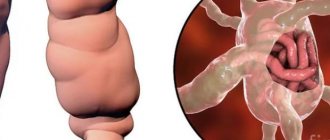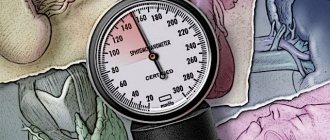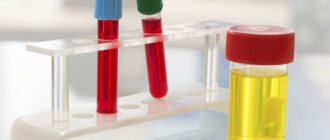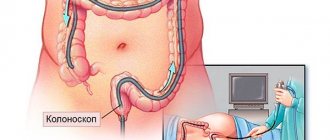Every 10 elderly people are diagnosed with dementia. Moreover, every 10 years this figure doubles as the number of elderly people grows. And in 50%-70% of cases it is associated with Alzheimer's disease1.
Alzheimer's disease is a chronic neurodegenerative disease characterized by the death of nerve cells in the brain. Since the neurons of the brain are destroyed, patients are characterized by disorders of memory and thinking, attention, speech, orientation in space, the ability to make decisions, and perform usual work duties. Mental disorders are expressed by anxiety and depression. In the later stages, intellect and mental activity disintegrate, and in general, motor disorders develop.
The disease is progressing all the time. On average, death occurs 8 years after diagnosis1. A medicine that can prevent the death of brain cells has not yet been invented, so the goal of treatment is to combat symptoms and increase life expectancy.
Kinds
The forms of the disease are divided according to age:
- with early (before 65 years) onset
- with late (after 65 years) onset
- atypical Alzheimer's disease (mixed type with vascular or other problems)
They differ not only in the age of onset of the disease. Often the timing of the onset of the first symptoms of Alzheimer's disease cannot be accurately determined, they are so invisible. It is important that the forms of Alzheimer's disease have significant differences in the clinical picture and features of the development of the disease, this allows for more accurate diagnosis.
Preventive actions
Preventive, that is, prophylactic measures, can slow down the development of the disease, but whether it can be prevented, scientists do not have a consensus.
To prevent Alzheimer's disease, it is recommended for older people to:
- lead an active life;
- be interested in new electronics;
- master the computer and use of gadgets;
- stimulate brain activity, read, find new hobbies.
Moderate physical exercise, especially outdoors, is very beneficial. At this time, the blood is saturated with oxygen, the brain structures begin to function better, which reduces the risk of vascular disorders.
When cardiovascular and pulmonary diseases are detected, it is important to treat them promptly. Normal organ function prevents the development of Alzheimer's type dementia.
Symptoms and signs
Symptoms and signs of Alzheimer's disease vary at different stages of the disease. First, short-term memory and the ability to remember new things are lost. The same questions are asked many times. Then abstract thinking is lost and long-term memory begins to suffer. Words, concepts, names of grandchildren, events of recent years are forgotten. Work tasks become impossible, writing and calculations are disrupted.
In older people, signs of Alzheimer's disease may include problems with mental calculations, forgetfulness, difficulty finding the right words, and handwriting becoming less legible.
In rare cases, the problem occurs before the age of 30, when there is a hereditary predisposition, as well as provoking factors such as diabetes mellitus and traumatic brain injuries. The difference is that the progression is much faster. First, short-term memory is impaired, then it becomes difficult to explain something. It is not always possible to start treatment on time, since Alzheimer's disease at a young age is easily confused with psychiatric diseases.
In women, the disease is more common and develops faster. Damage to nerve cells leads to changes in behavior: passivity, apathy, tearfulness, and frequent mood swings. Since the onset of the disease often coincides with menopause, it is not easy to determine that these are manifestations of Alzheimer's disease.
In men, the disease is diagnosed less frequently. Initial symptoms remain unnoticeable for a long time, and symptoms develop slowly.
Diagnostics
Tests
A neurologist or psychiatrist can make the correct diagnosis and identify the initial symptoms of Alzheimer's disease.
Diagnosis of Alzheimer's disease must be comprehensive.
In addition to the usual questioning and examination, psychological tests are used that identify problems with memory and cognitive functions at an early stage.
Examples of tasks:
- draw a clock face with a given time (for example 10.45);
- draw a clock face;
- reproduce a geometric figure from a picture;
- rewrite the sentence;
- read cards with words and then repeat;
- find the given symbol/number in the picture.
It is advisable for every elderly person to undergo testing in order to identify problems at an early stage.
Neuroimaging
Magnetic resonance imaging (MRI), computed tomography (CT), and positron emission tomography (PET) are used. These methods help to see changes in the structure of the brain. The doctor evaluates atrophic changes, the size of the grooves, gyri, and affected areas. Modern research helps to exclude other diseases, such as strokes, tumors, and prescribe the correct treatment.
Genetic testing
Helps to identify a disease with an early onset and aggressive course. Used in the diagnosis of familial forms of Alzheimer's disease.
Laboratory research
Allows you to exclude other diseases with similar symptoms of dementia. An analysis of liver enzymes, assessment of thyroid function, levels of B vitamins, folate, tests for syphilis, HIV, and urine testing are required. Examination of cerebrospinal fluid if a tumor or infection of the central nervous system is suspected.
A detailed analysis and history of the development of symptoms is important; this can increase the accuracy of diagnosing asthma to 90–95%2. It is important to note any new signs in the patient’s behavior. Sometimes this information plays a more important role compared to even CT/MRI studies.
Proper nutrition
Diet for a person affected by Alzheimer's disease is almost as important as pharmacological medications. The correct choice of menu components helps to activate memory, increase the ability to concentrate, and has a positive effect on brain activity.
Proper nutrition, the basics of which are suggested below, can also be considered as a tool for preventing dementia:
- Omega-3s are the most effective lipids for restoring hematopoietic processes. Also, these substances have a positive effect on memory and stop the destruction of intelligence. You can get valuable elements from olive oil, walnuts, and seafood. It will be useful to periodically follow a Mediterranean diet based specifically on seafood.
- Antioxidants are included in the diet in the form of corn, celery, spinach, and honey is also useful. Curcumin, which is extracted from the Indian spice turmeric, has a strong effect (antioxidant, immunostimulating, anti-inflammatory).
- Products designed to normalize intestinal activity are also very important. The menu should definitely include lean meat, eggs, liver and grains.
- Amino acids help restore brain function and improve the condition of nerve cells. It is especially important to regularly supply the body with tryptophan and phenylalanine. Their suppliers include fresh fruits and vegetables, nuts, herbs and dairy products.
There are also foods that it is advisable to completely exclude from the menu of a person suffering from Alzheimer's disease or, at a minimum, reduce their quantity:
- Fat meat;
- Flour;
- Sugar;
- Spicy seasonings and sauces.
Proper drinking regime also plays a role. Lack of fluid negatively affects the condition of the brain. A person with Alzheimer's disease should drink at least 2 liters of clean water per day. It is advisable to add green tea to your diet; freshly squeezed juices are beneficial.
Omega-3
Stages of the disease
Alzheimer's disease develops gradually, not all at once.
"Doubtful" dementia
The early stage may not be noticeable to others and can only be revealed through detailed neurocognitive tests. This stage is characterized by mild forgetfulness and inaccurate memories. You can also notice difficulties in determining the similarities and differences between objects and events. Abstract thinking and planning are difficult. In ordinary life, we won’t even notice this, so a person manages to hide or compensate for small problems in communication and work.
Mild dementia
Memory impairments become more obvious, especially for recent events. A person can get lost and forget his usual route. Confuse the order of events. Cannot find commonality or compare two objects or events. The ability to do calculations and write letters is lost. Such a person will speak slowly, use simple words, sometimes they may not be enough for reasoning. At the same time, the usual self-care activities are preserved.
Changes in behavior are already possible in the form of petty nonsense that someone is stealing from him, oppressing him, or causing harm. The state may be depressed due to the understanding that “something is wrong” with the head.
Moderate dementia
At this stage, learning new information becomes impossible. A person gets confused in the order of important events in his own life. He ceases to understand where he is and what time it is. The stock of memory and knowledge is constantly decreasing, they are becoming more and more inaccurate and blurred. Speech is impaired, first the ability to write is lost, then to read.
A “time shift” into the past may occur in consciousness. A person thinks and perceives everything as if he were not living today, but in a time that he still remembers. This may be accompanied by energy and a persistent desire for pseudo-activity.
Severe dementia
A person completely loses touch with reality, he not only does not orient himself in time and space, but also loses the idea of himself, his personality. Such a person cannot live independently. Attention is very weak. Reactions are more template, “automatic”. At the same time, emotional contact is preserved; an example would be “imaginary” conversations, when the patient tries to maintain a conversation, but its content is completely meaningless. The mood can change from aggression to apathy.
The patient is weakened psychologically and physically. Activity decreases sharply, complications develop in the form of bedsores, pneumonia, which leads to death.
Severe dementia
At this stage of Alzheimer's disease, patients are completely dependent on the help of others and are in vital need of care. Speech is almost completely lost, sometimes individual words or short phrases are preserved.
- Patients understand speech addressed to them and can respond, if not with words, then with expressions of emotion. Sometimes aggressive behavior may still persist, but, as a rule, apathy and emotional exhaustion predominate.
- A person practically does not move, because of this, his muscles atrophy, and this leads to the impossibility of voluntary actions; patients cannot even get out of bed.
Even for the simplest tasks they require the help of an outsider. Such people die not because of Alzheimer's disease itself, but because of complications that develop with constant bed rest, for example, pneumonia or bedsores.
Causes
There are many theories about the occurrence of Alzheimer's disease, but the exact cause has not been established.
The exact cause is still not determined.
Lack of acetylcholine. It was thought that the disease might be related to a deficiency of this neurotransmitter. But it turned out that the administration of this substance does not improve the condition of patients.
Amyloid theory. Amyloid protein is deposited in brain tissue and is detected on CT/MRI in the form of plaques. First, the transmission of nerve impulses is disrupted, then the brain cells die. It can take 10-15 years from the appearance of the first plaques to mild forgetfulness3.
Tau theory. Structural abnormalities occur in the structure of tau protein, which is contained in nerve cells. This disrupts the transmission of nerve impulses, and ultimately leads to the death of the neuron. These disorders are usually detected after the onset of amyloid plaques.
Genetic predisposition becomes the cause in only 10% of cases1.
Patient care
The main care for the patient is usually taken by the spouse or close relative, thereby taking on a heavy burden, since care requires physical exertion, financial costs, affects the social side of life and is psychologically very burdensome. Both patients and relatives generally prefer home care. While it may be possible to delay or avoid the need for more professional and costly care, two thirds of nursing home residents still suffer from dementia.
- Among those caring for a dementia patient, there is a high level of somatic diseases and mental disorders. If they live under the same roof as the patient, if the patient is a spouse, if the patient becomes depressed, behaves inappropriately, hallucinates, suffers from sleep disorders and is unable to move normally - all these factors, according to research, are associated with increased number of psychosocial problems.
- The caregiver also has to spend an average of 47 hours a week with the patient, often at the expense of work time, and the costs of care are high. Direct and indirect costs of patient care in the United States average from $18,000 to $77,500 per year, according to various studies.
Research shows that the psychological health of caregivers can be improved by cognitive behavioral therapy and training in coping strategies, both individually and in groups.
Treatment
Today, treatment for Alzheimer's disease is aimed at combating symptoms and improving the quality of life of patients.
It is important to start treatment in a timely manner!
Cholinesterase inhibitors. The following drugs are used to combat acetylcholine deficiency:
- acetylcholine precursors (citicoline, choline alfoscerate);
- promoting the release of acetylcholine in the synapse (ipidacrine);
- capable of enhancing the effect of acetylcholine (galantamine);
- blocking the breakdown of acetylcholine (rivastigmine, donepezil, galantamine, ipidacrine);
Memantine is the only drug recommended worldwide for the treatment of dementia due to Alzheimer's disease. Can be used for moderate to severe cases.
Cerebrolysin – believed to increase brain cell viability.
All drugs can have significant side effects and have strict contraindications, so the dosage regimen is selected individually by the doctor. It is also impossible to supplement the treatment regimen with nootropics in order to support the brain on your own.









